Imperator Rome is the next grand strategy game developed and published by Paradox Interactive, the leader in grand strategy. Imperator Rome is a Roman-era twist on the classic like-styled games Paradox has released in the past. Europa Universalis and Crusader Kings come to mind when looking back on games Paradox has made that may have inspired the development of their newest game. Imperator uses the basic framework of most grand strategy games but with added features. The game features character management, diverse populations, military tactics, and different forms of government. Take a seat at the helm of a nation and watch the beautiful looking map change as you mold it, changing history forever.
This type of grand strategy is based around country management. The game uses real time, meaning that things are happening unless you pause the game, unlike a turn-based game. You, as a player, are given control of a country, every part of it, including internal politics and policies and how they affect the population under your rule. Complete military control is given to you, with the power to move troops to wherever you want in your country. Diplomatic options are given to you: the power to trade, declare war, build friendships, and alliances. Grand strategy titles like this give complete control as a ruler to the player, and in this time period, give them the ability to shape borders and the future of the world.
The year 304 BCE seems like someone took the first number they could think of and slapped it into the game as its starting date. In the game, dates are shown in both BCE as well as the Roman year system, AUC. AUC stands for Ab Urbe Condita and means “from the founding of the city,” referring to the founding of Rome. It’s great little pieces of historical detail like that that make the game feel immersive while only being a really big map on a screen with armies scattered about. It’s a pretty lively part of history, whether it’s referred to as 304 BCE or 450 AUC.
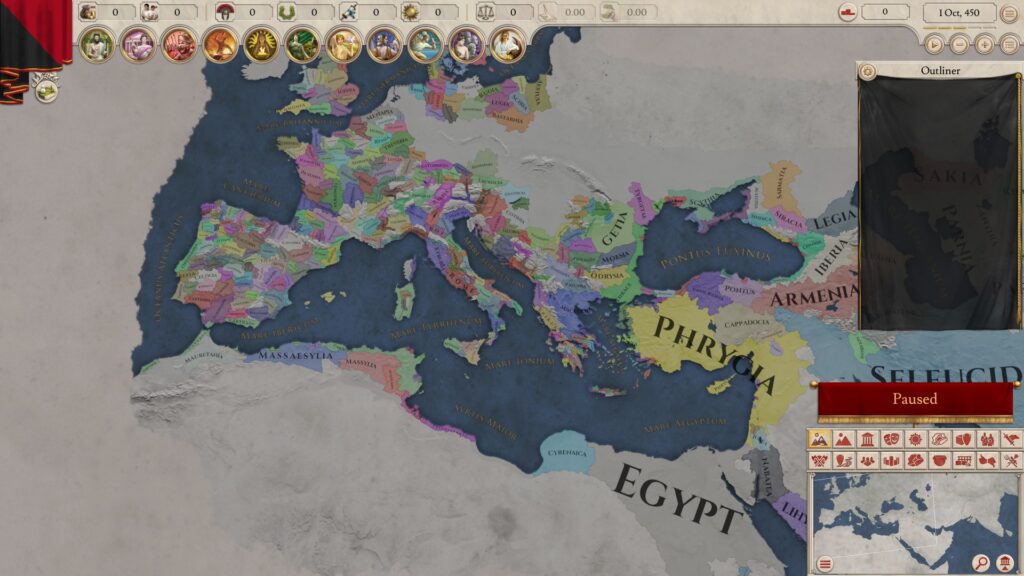
In the game, Rome is a republic with tributary states surrounded around it, poised to expand and take control of territory controlled by the historical enemies of the republic. Gaul, Iberia, Germania Britannia, and Scandinavia are covered in small tribes fighting amongst themselves to become bigger. The superpowers of the time (all of which are playable) include the vast Carthaginian Empire in Northern Africa, Iberia, and Sardinia. To the east lie the great successor empires of the empire that the famed Alexander the Great conquered and made part of his empire: Egypt, Macedon, Phrygia, and the Seleucid Empire. Even farther to the east lies the Maurya Empire located in India. Options are almost limitless regarding what type of country you chose to play and how you chose to affect the neighbors
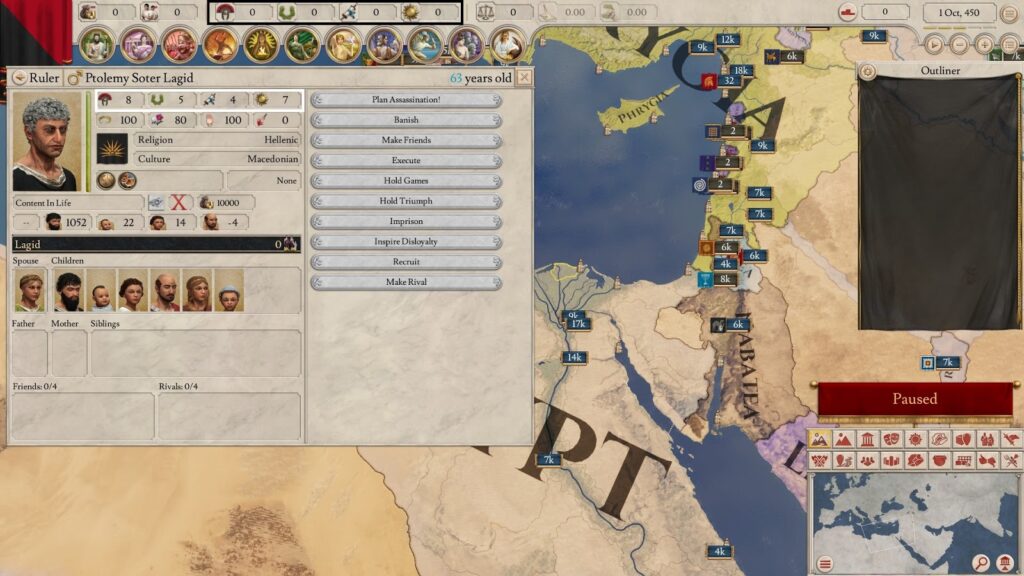
Their Martial relates to the ability to command troops, giving the commanded armies large advantages against enemies. Finesse represents the ability to comprehend things that have high levels of detail, and as such, it is beneficial for researchers and government workers. Governors must be appointed a province to ensure stability and
The world is not empty; populations exist in every city and are made up of four different types of social strata. Each pop belongs to a certain religious group as well as
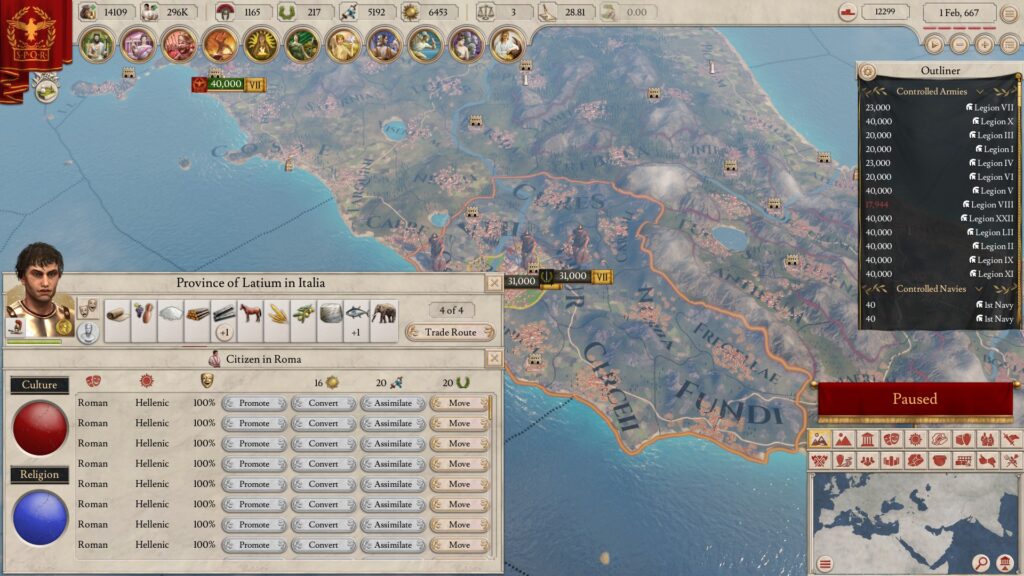
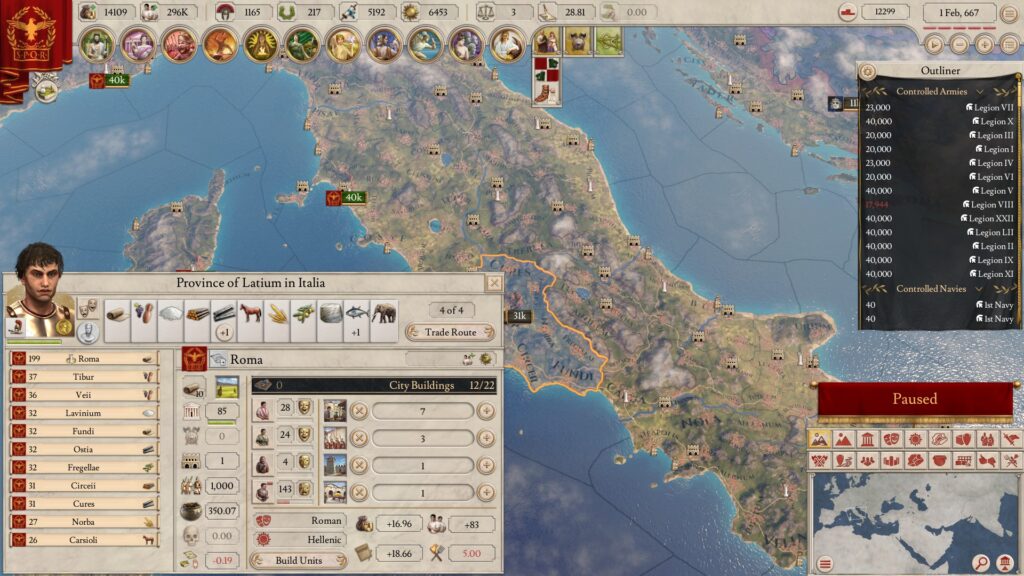
War! It’s only what fueled the molding of the era. War and military engagements, land or sea, are a vital point to the game. They can feel absolutely awesome as hundreds of thousands of troops meet on the fields of battle, invading the lands of hated enemies. On the other hand, they can be a strong deterrent to expansion and cause military alliances between nations to form out of the desperation to survive. In Imperator and previous grand strategy games by Paradox, troops have been able to be recruited in groups of a thousand and function as a group, unable to break apart. This
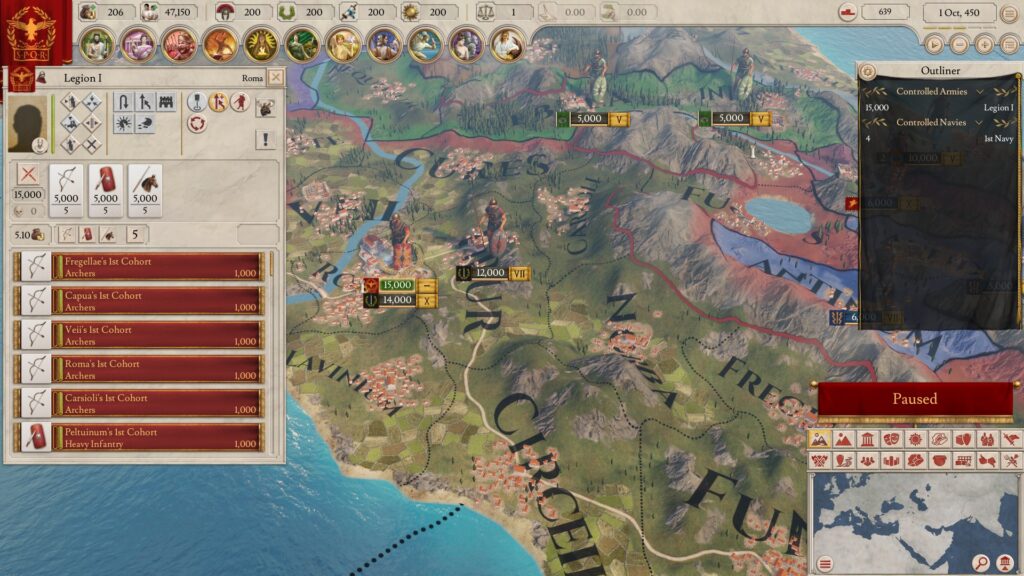
Governments in Imperator are few but all contain depth and differences. Monarchies, tribal governments, and republics are the forms of government that dominated the era. Differences regarding the ease with which actions can be completed and how thrones are succeeded are what set these government types apart. Republics like that of Rome and Carthage have senates comprised of one hundred seats held by different factions. These factions are essentially political parties, with each character belonging to one. All those pesky people checking your power make things hard. Each member of the Senate will have a stance on diplomatic decisions; at least 60 backers are required to pass. Elections are held every few years for republics. Monarchies and tribal governments are ruled by leaders that are absolute in power, not having to ask permission to do what they wish. Succession is slightly different for each. Monarchies succeed through the ruling family and tribal governments through whichever male family leader is most popular in the country. The system of internal politics is easy to understand and enjoyable at that.
While lacking the depth of other of Paradox’s games, Imperator has had a strong entry but will need to address lacking diplomatic features to continue its success. Thankfully the development team has heard the criticisms of their game and already has plans to completely rework naval combat, and are releasing bug fixes with speed.
If you’re a player and lover of grand strategy, or just want to get into the genre id recommend this game. It’s packed full of content, replayability and most of all good ol fashion conquest.


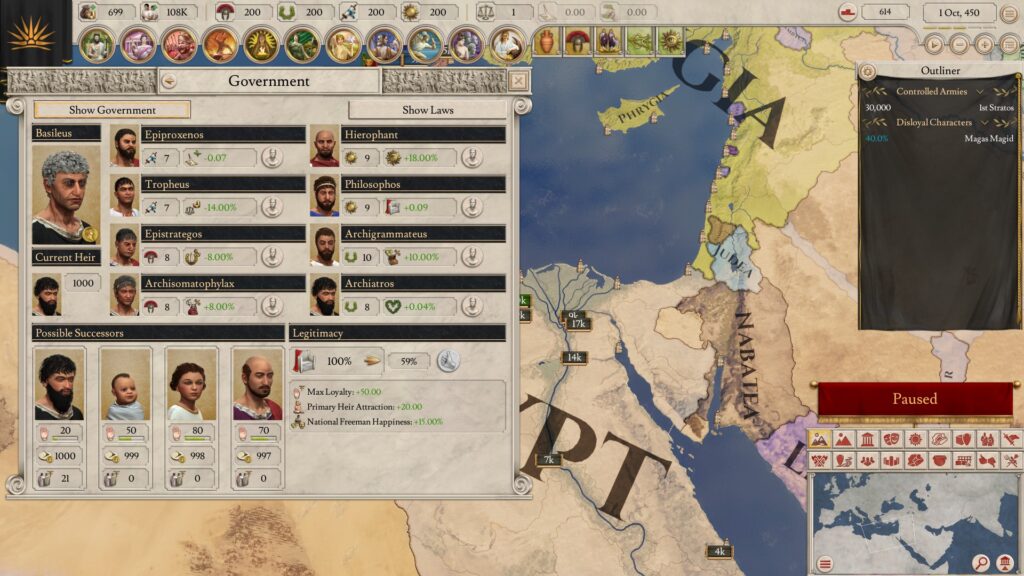
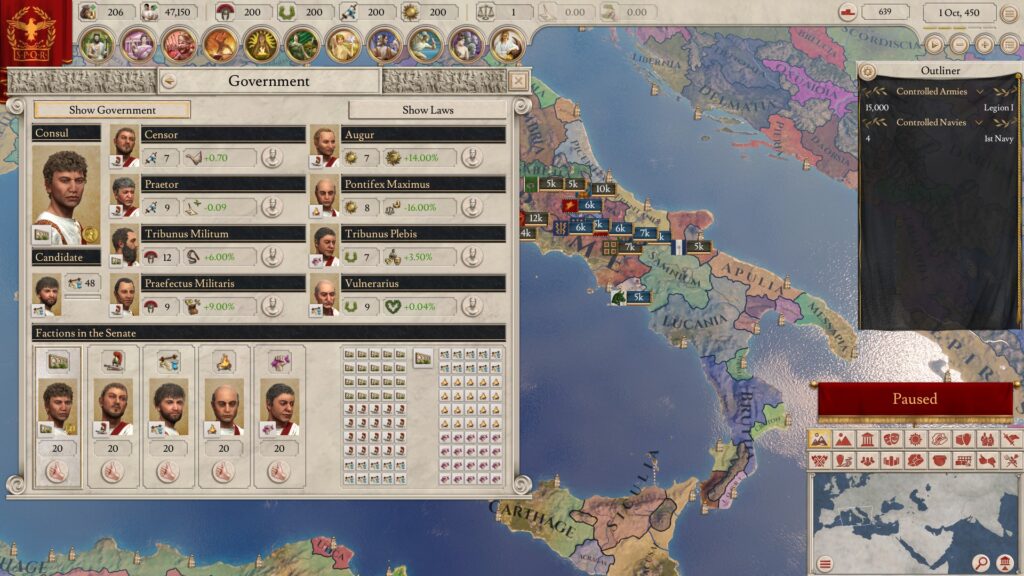
Comments: no replies